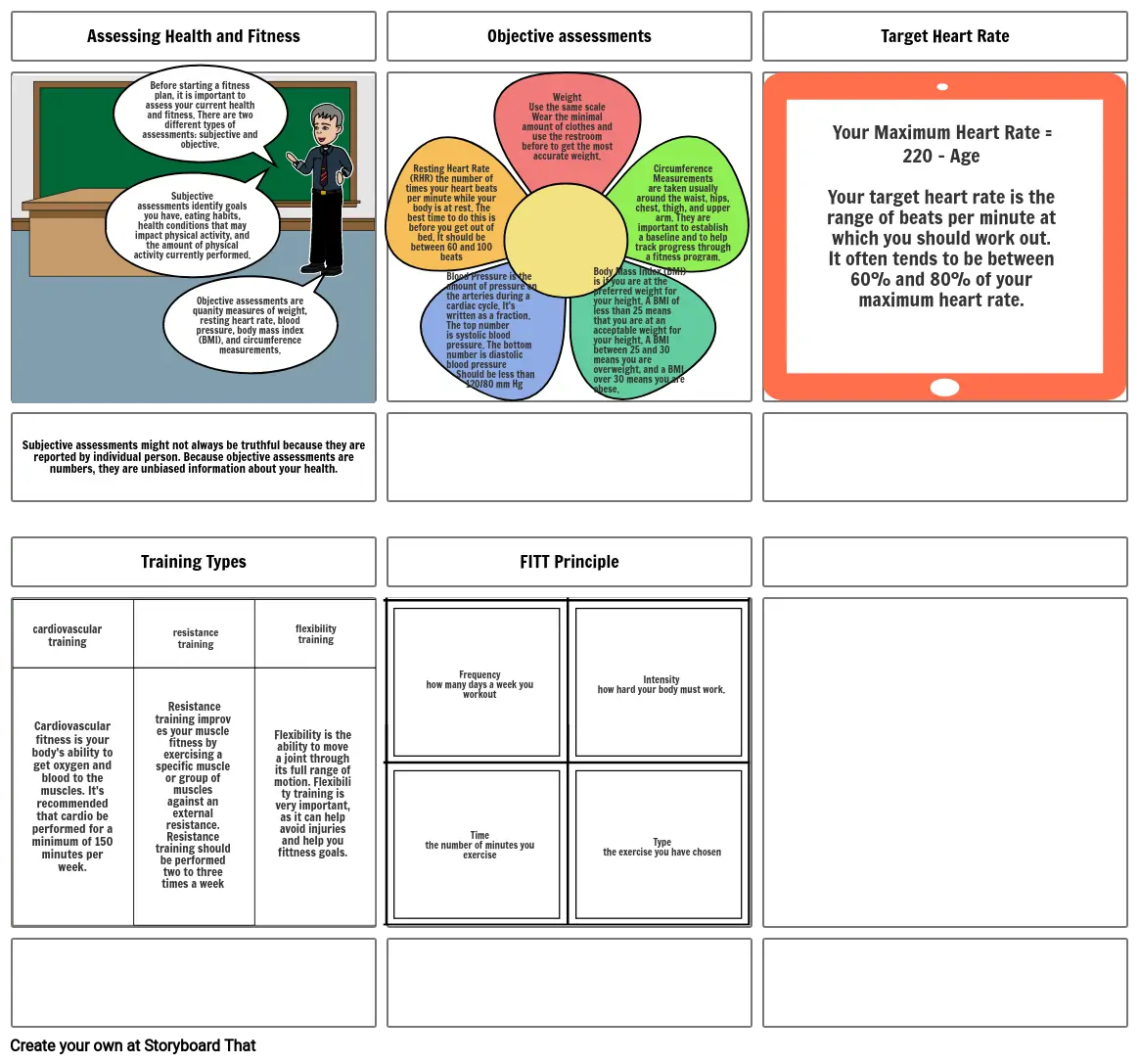Stapleton PFW1

Siužetinės Linijos Tekstas
- Assessing Health and Fitness
- Subjective assessments identify goals you have, eating habits, health conditions that may impact physical activity, and the amount of physical activity currently performed.
- Before starting a fitness plan, it is important to assess your current health and fitness. There are two different types of assessments: subjective and objective.
- Objective assessments are quanity measures of weight, resting heart rate, blood pressure, body mass index (BMI), and circumference measurements.
- WeightUse the same scaleWear the minimal amount of clothes and use the restroom before to get the most accurate weight. Circumference Measurements are taken usually around the waist, hips, chest, thigh, and upper arm. They are important to establish a baseline and to help track progress through a fitness program. Resting Heart Rate(RHR) the number of times your heart beats per minute while your body is at rest. The best time to do this is before you get out of bed. It should be between 60 and 100 beats Blood Pressure is the amount of pressure on the arteries during a cardiac cycle. It's written as a fraction. The top number is systolic blood pressure. The bottom number is diastolic blood pressure Should be less than 120/80 mm Hg Body Mass Index (BMI) is if you are at the preferred weight for your height. A BMI of less than 25 means that you are at an acceptable weight for your height. A BMI between 25 and 30 means you are overweight, and a BMI over 30 means you are obese.
- Objective assessments
- Target Heart Rate
- Your Maximum Heart Rate = 220 - AgeYour target heart rate is the range of beats per minute at which you should work out.It often tends to be between 60% and 80% of your maximum heart rate.
- Subjective assessments might not always be truthful because they are reported by individual person. Because objective assessments are numbers, they are unbiased information about your health.
- Training Types
- cardiovascular training
- resistance training
- flexibility training
-
- FITT Principle
- Frequency how many days a week you workout
- Intensityhow hard your body must work.
-
-
- Cardiovascular fitness is your body's ability to get oxygen and blood to the muscles. It's recommended that cardio be performed for a minimum of 150 minutes per week.
- Resistance training improves your muscle fitness by exercising a specific muscle or group of muscles against an external resistance. Resistance training should be performed two to three times a week
- Flexibility is the ability to move a joint through its full range of motion. Flexibility training is very important, as it can help avoid injuries and help you fittness goals.
-
- Timethe number of minutes you exercise
- Typethe exercise you have chosen
-
Sukurta daugiau nei 30 milijonų siužetinių lentelių

